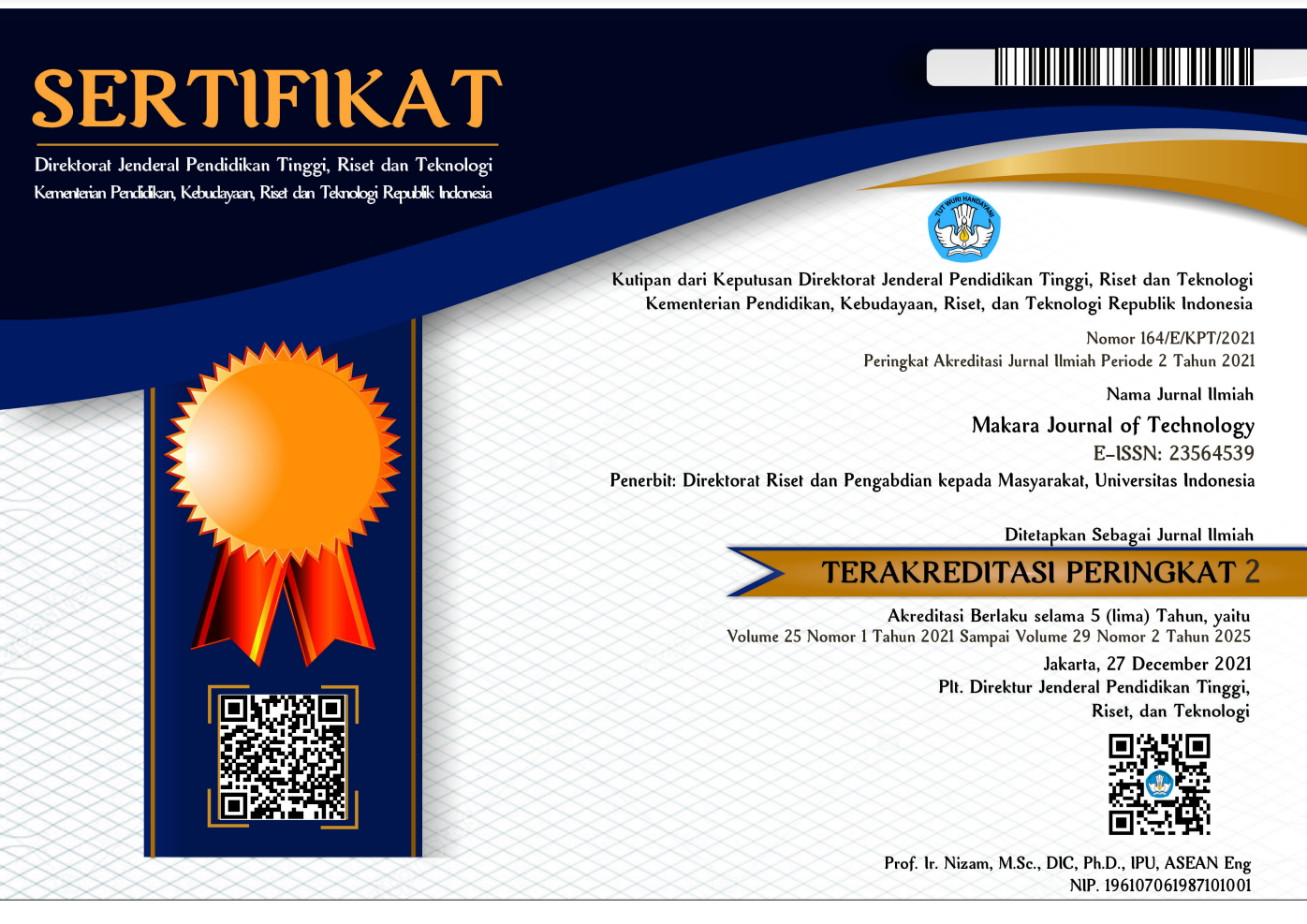Abstract
Monte Carlo simulation-based methods for stochastic optimization of risk measures is required to solve complex problems in supply security of subsidized fuel oil in Indonesia. In order to overcome constraints in distribution of subsidized fuel in Indonesia, which has the fourth largest population in the world—more than 250,000,000 people with 66.5% of productive population, and has more than 17,000 islands with its population centered around the nation's capital only—it is necessary to have a measurable and integrated risk analysis with monitoring system for the purpose of supply security of subsidized fuel. In consideration of this complex issue, uncertainty and probability heavily affected this research. Therefore, this research did the Monte Carlo sampling-based stochastic simulation optimization with the state-of-the-art "FIRST" parameter combined with the Sensitivity Analysis to determine the priority of integrated risk mitigation handling so that the implication of the new model design from this research may give faster risk mitigation time. The results of the research identified innovative ideas of risk based audit on supply chain risk management and new FIRST (Fairness, Independence, Reliable, Sustainable, Transparent) parameters on risk measures. In addition to that, the integration of risk analysis confirmed the innovative level of priority on sensitivity analysis. Moreover, the findings showed that the new risk mitigation time was 60% faster than the original risk mitigation time.
Bahasa Abstract
Optimalisasi Stokastik Tindakan Pencegahan Resiko Rantai Suplai-Sebuah Metodologi untuk Meningkatkan Ketahanan Suplai Bahan Bakar Minyak Bersubsidi di Indonesia. Metode berdasarkan simulasi Monte Carlo untuk opimasi stokastik pada penilaian risiko diperlukan untuk menyelesaikan masalah kompleks di dalam jaminan ketersediaan bahan bakar bersubsidi di Indonesia. Untuk mengatasi kendala distribusi BBM bersubsidi di Indonesia yang memiliki populasi penduduk keempat terpadat di dunia (lebih dari 250.000.000 jiwa dengan 66,5% populasi masyarakat produktif, dan memiliki lebih dari 17.000 pulau dengan populasi penduduk yang terpusat hanya di wilayah ibukota Negara) diperlukan sistem pengawasan dan penanganan risiko yang terukur serta terintegrasi demi jaminan ketersediaan BBM bersubsidi. Dengan mempertimbangkan masalah kompleks tersebut, penelitian ini sangat dipengaruhi oleh ketidakpastian dan probabilitas. Oleh karena itu, penelitian ini menggunakan metode simulasi optimasi stokastik berdasarkan sampling Monte Carlo pada kerangka kerja analisis risiko dengan keterbaruan parameter “FIRST”, yang dikombinasi dengan Analisis Sensitifitas untuk menentukan prioritas penanganan mitigasi risiko yang terintegrasi agar implikasi dari rancangan model yang baru dari penelitian ini dapat memberikan waktu mitigasi yang lebih cepat. Hasil dari penelitian ini dapat mengidentifikasi ide-ide inovatif pada audit berdasarkan risiko pada manajemen risiko rantai pasok dan parameter FIRST (Fairness, Independence, Reliable, Sustainable, Transparent) dalam penilaian risiko. Selain itu, integrasi pada analisis risiko menghasilkan tingkatan prioritas pada analisis sensitivitas dengan temuan yang menunjukkan bahwa waktu mitigasi yang baru lebih cepat sebanyak 60% dari waktu mitigasi risiko dengan metode yang umum.
References
- International Institute for Sustainable Development (IISD), Public Guidance on Energy Subsidies in Indonesia, International Institute for Sustainable Development, Canada, 2012, p.48.
- IEA, OPEC, OECD, World Bank Joint Report, Analysis of the scope of energy subsidies and suggestions for the G-20 initiative, Toronto, Canada, 2010, p.80.
- J.A.D. Granado, D. Coady, R. Gillingham, The Unequal Benefits of Fuel Subsidies: A Review of Evidence for Developing Countries, International Monetary Fund, 2010, p.23.
- International Energy Agency, Energy Supply Security 2014, France, 2014, p.606.
- Indonesian Petroleum Association & Price Waterhouse Coopers, The Urgency of Building Competitiveness to Attract Oil and Gas Investment in Indonesia, International Petroleum Association and Price Waterhouse Coopers, Jakarta, 2005, p.74.
- G. Bayraksan, Disertation, Doctor of Philosophy, The University of Texas, Austin, 2005, p.123.
- T. Homem-de-Mello, G. Bayraksan, Elsevier Surveys Operat. Res. Manag. Sci. 19 (2014) 56.
- T. Homem-de-Mello, G. Bayraksan, Topics on Monte Carlo Simulation-Based Methods for Stochastic Optimization Problems: Stochastic Constraints and Variance Reduction Techniques, National Science Foundation, Ohio, 2014, p. 74.
- A. Shapiro, Monte Carlo Sampling Methods, Elsevier Science B. V. Eds, Handbooks in OR & MS, Vol. 10, Chapter 6, 2003, p. 17.
- D.C. Montgomery, Design and Analysis of Experiments, 8th ed., John Wiley & Sons, Inc., 2008, pp. 752.
- J.F.Jr. Hair, C.B. William, B.J. Babin, R.E. Anderson, Multivariate Data Analysis: A Global Perspective, 7th ed., Prentice Hall Pearson, New Jersey, 2010, p. 816.
- E. Kreyszig, Advanced Engineering Mathematics, 10th ed., John Wiley & Sons, 2011, p. 1283.
- R.Y. Rubinstein, D.P. Kroese, The Cross – Entropy Method A Unified Approach to Combinatorial Optimization, Monte-Carlo Simulation, and Machine Learning, Springer Science + Business Media, New York, 2013, p. 301.
- Massachussets Institute of Technology (MIT) in collaboration with PricewaterhouseCoopers (PwC), Supply Chain and Risk Management: Making the Right Decision to Strengthen Operation Performance, MIT Forum for Supply Chain Innovation, 2013, p. 32.
- PricewaterhouseCoopers, A Practical Guide to Risk Assessment: How Principles-Based Risk Assessment Enables Organizations to Take The Right Risk, New York: PricewaterhouseCoopers, 2008, p. 40.
- United Nations Global Compact and Business for Social Responsibility, Supply Chain Sustainability: A Practical Guide for Continuous Improvement, United Nation Global Compact, 2010, p. 68.
- The Institute of Internal Auditors, Applying COSO’s Enterprise Risk Management – Integrated Framework, The Institute of Internal Auditors, New York, 2004, p. 16.
- PricewaterhouseCoopers, European Market Infrastructure Regulation (EMIR): New Requirement for OTC derivatives clearing, PricewaterhouseCoopers, New York, 2013, p. 4.
- The Association of Insurance and Risk Managers (AIRMIC), The Public Risk Management Association (ALARM), The Institute of Risk Management (IRM), A Structured Approach to Enterprise Risk Management (ERM) and The Requirements of ISO 31000, AIRMIC, Alarm, IRM, London, 2010, p.20.
- A. Yuanita, Thesis, Department of Chemical Engineering, Faculty of Engineering, University of Indonesia, 2013.
Recommended Citation
Yuanita, Adinda; Sommeng, Andi Noorsaman; and Wijonarko, Anondho
(2015)
"Stochastic Optimization of Supply Chain Risk Measures –a Methodology for Improving Supply Security of Subsidized Fuel Oil in Indonesia,"
Makara Journal of Technology: Vol. 19:
Iss.
2, Article 5.
DOI: 10.7454/mst.v19i2.3037
Available at:
https://scholarhub.ui.ac.id/mjt/vol19/iss2/5
Included in
Chemical Engineering Commons, Civil Engineering Commons, Computer Engineering Commons, Electrical and Electronics Commons, Metallurgy Commons, Ocean Engineering Commons, Structural Engineering Commons



